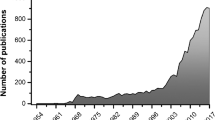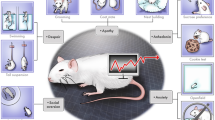Abstract
Rationale. The forced-swimming test (FST) is utilized to reproduce passive coping responses to stress that may model a relevant aspect of human depression in rodent species. Animals showing high levels of passive responses to the FST are assumed to model pathologically depressed individuals.
Objectives. We evaluated sensitivity of FST-induced behavioral responses to the interaction between genetic and environmental influences.
Methods. Behavioral responses to FST were evaluated in naive mice of the C57BL/6 and DBA/2 strains, in mice of both strains pre-exposed to FST 14 days before test, and in FST-experienced animals subsequently exposed to 12 days of stress experience (food restriction).
Results. C57BL/6 mice are characterized by high propensity to adopt passive coping responses in the FST. Moreover, stress enhances FST-induced immobility in mice of the C57BL/6 strain but reduces this response in DBA/2 mice. Finally, FST-induced immobility in C57BL/6 mice is reduced by chronic treatment with clinically effective antidepressants.
Conclusions. These results support the view that behavioral and neural responses to FST exhibited by C57BL/6 mice can be usefully exploited by pre-clinical research on depression.
Similar content being viewed by others
Author information
Authors and Affiliations
Additional information
Electronic Publication
Rights and permissions
About this article
Cite this article
Alcaro, A., Cabib, S., Ventura, R. et al. Genotype- and experience-dependent susceptibility to depressive-like responses in the forced-swimming test. Psychopharmacology 164, 138–143 (2002). https://doi.org/10.1007/s00213-002-1161-8
Received:
Accepted:
Issue Date:
DOI: https://doi.org/10.1007/s00213-002-1161-8




